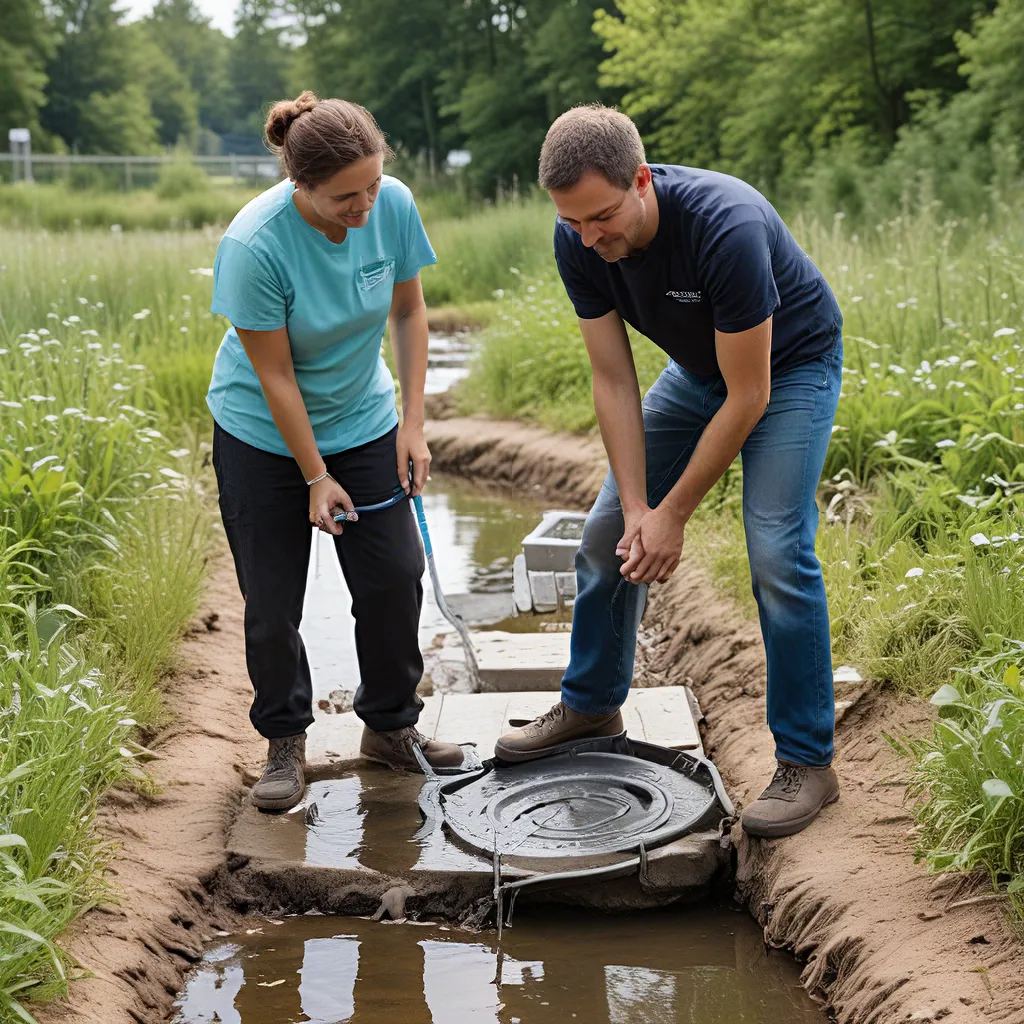
As the Manager of the Bard Water Lab, I’ve had the privilege of witnessing firsthand the power of community engagement in protecting our precious water resources. It’s a role that has allowed me to dive deep into the complexities of wastewater treatment and the vital role that citizens play in safeguarding the health of our local watersheds.
You see, we’re all connected by our need for water – it’s the lifeblood that sustains our very existence. From the food we eat to the clothes we wear, water is the foundation upon which our daily lives are built. But not everyone has equal access to clean and safe water. That’s a harsh reality I saw up close during my time in Oaxaca, Mexico, where communities were uniting to defend their right to this basic human necessity.
The Bard Water Lab: A Nexus of Science and Community
The Bard Water Lab, where I’m proud to serve, is a cross-disciplinary research hub that brings together the social, political, and scientific dimensions of water management. It’s part of the larger Center for the Study of Land, Air, and Water, a think tank dedicated to ensuring the fair and equitable stewardship of our natural resources.
Through the Bard Water Lab, we’ve forged partnerships with two local watershed communities – the Saw Kill in Dutchess County and the Roeliff Jansen Kill in Columbia County. These collaborations have allowed us to monitor water quality and empower citizens to take an active role in protecting the very bodies of water that nourish their communities.
Community Science: Grassroots Guardianship of Watersheds
One of the cornerstones of our work is the power of community science. By involving local residents in the process of collecting and analyzing water samples, we’re not only generating crucial data, but we’re also fostering a sense of ownership and investment in the health of these waterways.
These monthly sampling efforts, carried out by community members and Bard students, provide a wealth of information about the water quality of the Saw Kill and Roeliff Jansen Kill. And as the Water Lab Manager, I have the privilege of sharing this data with the community, giving them a deeper understanding of the factors that influence the well-being of their local watersheds.
This knowledge-sharing process is vital, as it creates a pathway for communication where public concerns can be raised, and potential solutions from scientific experts and policymakers can be exchanged. It’s a symbiotic relationship that empowers community members to take an active role in addressing the issues that affect their water security.
Addressing Water Security Challenges
One of the significant projects I’ve been involved with as a member of the Saw Kill Watershed Community Leadership Team is the creation of water security recommendations for the Town of Red Hook. These recommendations were inspired by the water crisis in the nearby city of Newburgh, where the drinking water supply was contaminated by PFAS chemicals from firefighting foam.
By drawing on the Riverkeeper scorecard project, which helps watershed communities identify their threats and risks, we were able to develop a comprehensive set of strategies to bolster the resilience of the Saw Kill watershed. This is a critical step, as water management strategies must adapt to account for multiple threats and stressors – from droughts and sewage contamination to chemical spills and aging infrastructure.
The Power of Watershed Governance
As I’ve learned through my work, bottom-up water governance provided by watershed groups is key to empowering citizens to protect their local waterbodies and create effective management plans. And it’s not just about the technical aspects of water quality monitoring – it’s about building relationships, fostering trust, and giving community members a genuine voice in the decisions that shape the future of their water resources.
The Bard Water Lab is proud to support these community-driven efforts by providing affordable and accessible water quality testing, as well as the necessary tools and guidance to help citizens understand the significance of the data they collect. It’s all about empowering people to take their water security into their own hands.
A Call to Action: Find Your Local Watershed Group
If you’re inspired by the stories of community-led water stewardship I’ve shared, I encourage you to explore the Hudson River Watershed Alliance to find a watershed group near you. These grassroots organizations are the lifeblood of sustainable water management, and they’re always looking for passionate volunteers to join their ranks.
By working together, we can build resilient communities that are prepared to meet the water challenges of today and tomorrow. And who knows – your involvement might just lead you on a transformative journey, like the one I experienced at the Bard Water Lab. So why not take the first step and get involved? Your local watershed will thank you.
Alpha Wastewater is a leading provider of comprehensive wastewater treatment solutions, committed to supporting community-driven initiatives that protect our precious water resources.